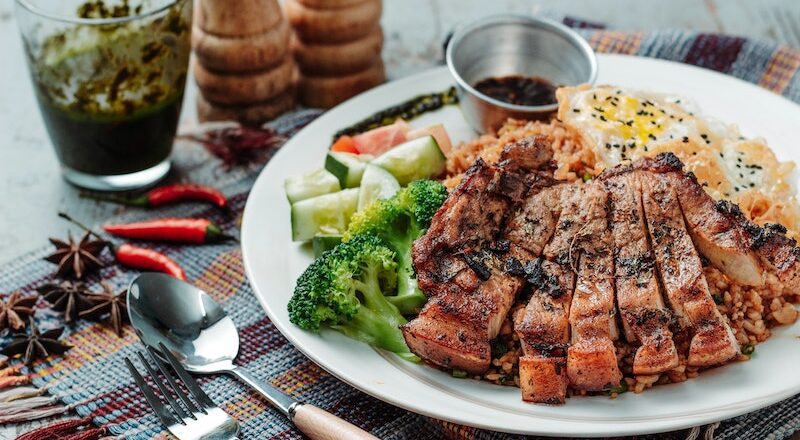
What would happen in a vegan world?
M.A.C. (MoreAboutChicken.com) asked Dr Susanna Bramante to contribute to the topical issue that sees the vegan population lashing out against those who support the correctness of an omnivorous diet. Below we publish what emerges from her analysis.
“What would happen if the world went completely vegan? Have you ever wondered? The vegan ideology is based on ethical principles of respect for animal life, proposing a lifestyle completely free of meat and animal-derived products. The aim is not to make animals suffer, thus not killing or exploiting them, but to gain health and environmental benefits. But would such a life be feasible? And above all, would the consequences be beneficial in terms of environmental impact and better health for humans?
These questions were answered by various scholars, such as researchers at the Friedman School of Nutrition Science and Policy, who compared the land use of ten different diets. Among the scenarios analysed, those that excluded foods of animal origin, contrary to popular belief, were less efficient in soil management and utilisation. Land use linked to the vegan diet was less virtuous because it fed fewer people than land use based on the omnivorous diet. In a paradoxical scenario of 100% veganism, according to the study, we would need more arable land, as the ingredients of the vegan diet are produced with very low efficiency, requiring more resources to meet the protein needs of the human population, with greater exploitation and depletion of soil organic matter.
Hence, the complete and sudden elimination of animal products may not be the most sustainable long-term option for humanity, with a deterioration of the resource ‘land’. Without animals, there would also be a shortage of manure and, thus, natural fertiliser for the soil, resulting in a greater reliance on chemicals and synthetic fertilisers. The absence of meat would lead to a chain lack of milk, cheese and eggs, compromising the diet of vegetarians, who base their protein intake on these other important animal sources. Consequently, there would also be a shortage of products from livestock-dependent supply chains, such as pet food and pet toys, cosmetics, medicines and medical devices such as heart valves, materials and clothing such as leather and wool, biogas and natural fertilisers.
In a paradoxical scenario of 100% #veganism, according to the study, we would need more arable #land, as the ingredients of the #VeganDiet are produced with very #LowEfficiency. Click To TweetIn practice, a vegan world is not as idyllic as thought. On the contrary, to give a few examples, our pets would go without food; we would then have to replace the leather, a natural and sustainable material, with plastic or other more polluting materials. We would lose the possibility of producing biogas from animal dung, which is clean, renewable energy that can contribute to achieving energy independence. We would then lose the possibility of operating in a circular economy, where by-products or livestock farming waste instead become resources and raw materials for other supply chains. By breaking the closed circle of circularity, the environmental impact and pollution would be higher in a vegan world because there would be more waste to dispose of.
Livestock farming allows the maintenance of a natural balance in which animals are perfectly integrated, guaranteeing protection and care of the land, biodiversity, landscape and hydrogeological safety. It is no coincidence that we speak of regenerative agriculture, a holistic approach strongly integrated with livestock farming, as livestock farming allows for the reduction of fertilisers, thanks to animal droppings that fertilise the earth, restoring the soil’s natural capacity to absorb CO2 emissions and combating desertification. What would we then do with all the free-roaming animals on the land if no more livestock farms existed? We would still have methane emissions, with the aggravating factor that in livestock farming, they are reduced through balanced animal feeding and decarbonising agronomic practices. At the same time, without human control, everything would be left in the wild, with higher emissions and environmental impact.
An exclusively plant-based world would be impractical, even from a nutritional and health perspective. We are scientifically classified as omnivores, and eating only vegetables goes against our evolutionary biology. Indeed, new studies of high scientific quality show that the vegan diet is unnatural and has more disadvantages than benefits for our health. This is because of the predictable nutritional deficiencies one faces, as vegetables alone cannot provide all the nutrients we need. Veganism is a dietary pattern that has no evolutionary precedent in the species Homo sapiens. Our prehistoric ancestors began consuming meat, fish, seafood and eggs at least 2.6 million years ago, and meat in particular with its nutrient density, made a significant contribution to the development of our brains and intelligence, giving us a strong evolutionary impetus and improving our health and longevity over time.
We are scientifically classified as #omnivores, and eating only #vegetables goes against our evolutionary #biology: the #vegan diet is unnatural and has many disadvantages for our #health. Click To TweetStrict adherence to a vegan diet causes deficiencies in key nutrients, including vitamins B12, B2, and D, niacin, iron, iodine, zinc, high-quality protein, omega-3, and calcium, the reliable sources of which are meat and foods of animal origin. This is because vegetables, cereals and pulses are deficient in essential nutrients and high in fibre, phytates and anti-nutrients that interfere with their absorption. Instead, consuming animal and plant foods together ensures complementarity and the correct intake of all the nutrients needed to cover our needs adequately.
In a vegan world, one must necessarily resort to supplements and fortified or over-processed foods to compensate for the lower nutritional value of vegetables. However, this is not a healthy way of eating, which goes against the principles of a varied and balanced diet, causing a deterioration in the nutritional quality of the diet and, consequently, the health of the body. In short, it seems very difficult to satisfy and pander to the demands of the small armies of vegetarians and vegans to stop eating meat, which is impractical and worsening from an environmental and health perspective. A more logical and evolutionarily congruent approach is to include adequate amounts of meat and nutritionally dense foods of animal origin, according to the omnivorous dietary model, which is more compatible with our physiology and balanced with the environment.”
In conclusion, it may be useful to reflect on the fact that, for reasons that cannot be rationally explained, when one speaks of omnivorous people, it is as if one were to confuse ‘omnivore’ with ‘carnivore’ and hence the erroneous perception that the omnivore feeds mainly on meat. Intuitively and scientifically, however, it is the omnivorous diet that is the most balanced (also in terms of environmental impact), consisting as it does of the nutrients found in every available food source. The vegan diet, on the other hand, is characterised by deficiencies and needs to be supplemented. On the other hand, the omnivorous diet that exceeds in meat needs to be balanced by supplementing it with more vegetables. The best way always tends to be a complete way. And the omnivorous diet is.”
Links to in-depth studies are also included in the text:
https://www.sciencedirect.com/science/article/abs/pii/S0033062022000834
https://pubmed.ncbi.nlm.nih.gov/33341313/
Source: M.A.C. (More About Chicken)





